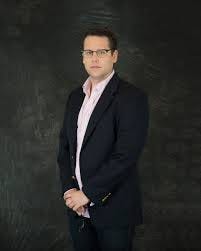Writing is always difficult during any political interregnum. That’s why so much of it is bad and not worth one’s time. Too much wish-casting or doom-saying, or whatever. It’s hard to do this for a living, day in and day out. George Will ought to win some kind of journalistic Cal Ripken Jr. award. He does not hit homers, but the man reliably shows up. I suppose David Brooks and Bret Stephens also show up, though it’s been a few years since either wrote anything meaningful. The modern New York Times will do that to a person.
Still, writers like Will, Brooks, Stephens and a handful of others, make up the firmament good little conservatives have been taught to recognize. But there are other stars out there, in other countries even, and I suggest young people look to solar systems just beyond ours for inspiration in the months to come.
The reason for this is not because our conservative luminaries are bad or even all that wrong, it’s that they are terribly predictable. If, presented with a political topic at random, I can guess at a given pundits analysis, then there is no reason I should turn to them for wisdom. It’s one of the reasons left-wing pundits are such a snooze. Jamelle Bouie, Michelle Goldberg, Paul Krugman, Farhad Manjoo, pick one at random, then spin a wheel of topics. It does not take much to anticipate the kind of column they would write. And the same goes for our side.
There are a few reasons for this, but you know them already, really. These people—Brooks, Krugman, Manjoo—go to the same schools, attend the same parties, wind the same lecture circuits, and are feted by a similar political class. Are you surprised, then, that their critical faculties dull? That their common lifestyle produces more or less a uniform, ready-made outlook on life?
Why do you read these people? Don’t! Aren’t you bored? Uninspired? Insulted, even, by the monochrome analysis?
Now, I’m not going to tell you who to read (other than the authors we publish at The American Mind), but I do enjoin you to make an effort in the new year to ensure a more eclectic mix of writers is added to your daily intake. By this I don’t mean toggling between pundits at the big three newspapers or switching quarterly subscriptions, but really taking the time to search out new conservative writers with something fresh to say. These writers exist—many in other countries—but it takes looking since many don’t have stable platforms from which to publish. Indeed, many of them just use Substack or live only on Twitter. Don’t let their lack of so-called credentials put you off; this independence is precisely why many of them feel so fresh and vital.
The media and media consumption is changing. And for the better, I think. Today one has a dizzying amount of news options, a reality that would have greatly upset Ben Bradlee, which tells one all one needs to know. The trick, now, is understanding how to discover good sources.
That will be the subject of another essay.






This is spot on. We really do need to triangulate our news, and none of it should come from Legacy—or at least the most interesting stuff is not coming from legacy, which is one large echo chamber of confirmation bias. Decent writers are hard to come by—talented writers about The Good are more difficult. Ind. Journos are better than corporate—more factual, more insightful. The best thinkers? Even a smaller pool to choose from.